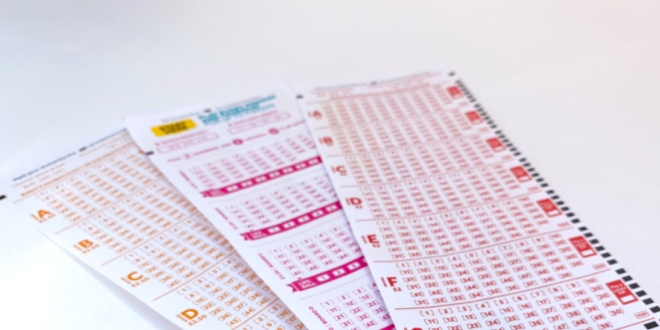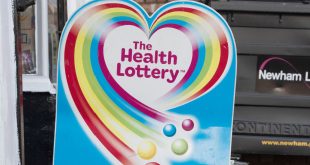At first glance, the proposals made in the Gambling Act review paid little attention to the lottery sector, focusing more heavily on betting and casinos. This is something which Lebby Eyres believes is due to the lottery space being ‘on the softer side of gambling’. 
Regardless, The Health Lottery CEO stressed that lotteries, like other betting and gaming stakeholders, must ensure that safety and responsibility are held to the highest possible standard.
“Lottery is on the softer side of gambling, but we do also have instant win products too, so it’s important for us that we take responsibility,” Eyres summarised.
The White Paper’s lottery numbers game
Although betting and casino found itself under the regulatory spotlight the most in the Gambling Act review, lotteries were not excluded, however, with a few aspects of the White Paper addressing the sector.
Notably, the review has raised the minimum age for all lottery products – society lotteries included – to 18. It has also enhanced regulation of ‘prize draw’ competitions, identifying these contests as competitors to lotteries.
“It’s a positive thing for society lotteries because ultimately we’re operating for and raising money for good causes,” Eyres commented on prize draw regulations..
“We’re governed in terms of the size of the jackpot we can have in terms of ticket sales, and the minimum we have to give to good causes. It’s right that prize draws may be subjected to the same rules.”
That is not to say that Eyres supports a clampdown on such companies, such as OMAZE, the American fundraising platform which has been operating its charity-supporting sweepstakes in the UK since 2020.
The Health Lottery CEO emphasised the importance of a level and competitive playing field for lotteries. She observed that there is room for this sector to continue growing, along with the National Lottery and prize draws, but with one key social responsibility.
“Society lottery as a whole is a growing market and there is room for them to grow, alongside the National Lottery,” she said.
“There is room for companies like OMAZE to grow, but what is important is we protect the good causes and charitable funding, and that we have absolute clarity on behalf of the player, so they know how much is going to charity from sales.
“The problem is that they are currently not regulated by the Gambling Commision and therefore not subject to the same rules as lotteries.
“We are in the cost of living crisis, and we have seen that charitable giving is being affected. We can see with the National Lottery and The Health Lottery, as well as with single cause lotteries, that they are an efficient way to raise money for good causes.”
On the topic of age limits and verifications, Eyres agreed with the DCMS proposal to set a blanket age limit of 18, noting that The Health Lottery was ahead of the curve in this regard.
The White Paper’s recommendation that betting firms should make greater use of technological solutions was also warmly received by the CEO, who added that she has plans to follow this by adopting ‘more sophisticated ways to keep track of age verification and problem gamblers’.
Eyres continued: “Lotteries are unique in gambling, and typically our customers spend £8-£10 a month. “It’s not excessive and is affordable for most, and the lottery represents that safer part of gambling, but that’s not to say that we’re not taking our responsibilities extremely seriously, because we are.
“What’s key and what needs to be addressed with the specifications around 18-24s, is that it’s very different to how it used to be, as everyone now has a telephone in their hand, and the risk does go up.
“We welcome the fact that there are going to be increased controls put in place for 18 to 24 year olds. It’s a vulnerable time making that transition from being a teenager to an adult, you may be getting your first paycheck and feel the temptation to spend more than you can afford.”
Rebranding under new regulation
When Eyres assumed CEO duties at The Health Lottery after a long career in the editorial wing of its Northern & Shell Group parent company, she explained to SBC that a key objective for 2023 is to relaunch a rebrand of the operator.
Having taken on the role four months before the White Paper’s publication, have the government’s proposals impacted Eyres’ plans for The Health Lottery?
In her discussion with SBC, it seems that the lottery’s plans remain on track, particularly regarding the leveraging of content, as Eyres brings her editorial knowledge and experience to the role.
“We’ll be boosting our safer gambling content on our website as part of our relaunch,” she continued. “Hopefully when people see the website relaunched in August, they’ll find it easier to access content around safer gambling.
“The Gamstop clickable links and logos are already on our website, and will be even more obvious after our relaunch, as our safer gambling page will be accessible from the main menu. We’re very clearly giving advice, and have designed the website to signpost this more clearly.
“There are also suggestions in the White Paper around marketing and communication with subscription customers and that issomething we will be keeping an eye on with any product relaunch.”
Eyres added that when it comes to marketing, she welcomed the recommendations on sports sponsorship made by the DCMS, which will see a new Code of Conduct adopted for partnerships between betting firms and sports clubs.
Although there has been no mention of society lotteries, the National Lottery will not be subject to the White Paper’s sports sponsorship proposals. But Eyres was able to explain how The Health Lottery aims to navigate the regulatory waters.
She continued: “It is very much in the realm of us having influencers, such as aligning ourselves with a sporting celebrity associated with good health. We’d have to be careful to avoid someone associated with youth culture, such as a Lioness.”
As a health-focused society lottery, regardless of White Paper judgements The Health Lottery remains focused on its core objectives, Eyres explained – addressing mental health, social isolation, and bringing communities together.
Pointing to the group’s fundraising focus and the work of People’s Health Trust, its funding body, to address long-term causes of health inequality, she emphasised that The Health Lottery Is ‘definitely a market leader in social responsibility’.
“I would definitely hope for us to be one of the market leaders!” she said. ”We’ll have to wait and see what Allwyn are doing when they take on the National Lottery. We have to embrace these changes suggested in the White Paper. No one who runs a gambling company wants people coming to harm because of their products.
“We need robust systems to address problem gambling, so that people who are worried know that they can get help and can speak to somebody. I take that responsibility incredibly seriously, and it would be brilliant if The Health Lottery could be seen as a market leader in that.”
From Eyres’ observations, lotteries will continue to be a safer and responsible means of gambling for many, pointing to the brand’s Quick WIn product, where players get the chance to win a £25,000 jackpot every three minutes, as an example of this.
Despite being a quickfire game, unlike the standard lottery which may be drawn days after a ticket is purchased, Quick Win has been played ‘in a very similar way to the lottery’, Eyres explained, indicating that The Health Lottery has gone to great lengths to ensure its products are ‘a safer form of gambling, regardless of whether the draw is three minutes away or six days away’.
Emphasising a viewpoint expressed by betting and gaming stakeholders throughout the review’s two year course, Eyres doubled down that regulatory reform must ultimately find an effective balance between protecting the vulnerable and ensuring gambling remains a choice – in her view, the White Paper has achieved that objective.
“Ultimately playing the lottery is about having fun and having a flutter, it’s a small part of our weekly or everyday ritual,” the CEO concluded.
“We’re a feel-good lottery, in the sense you have a flutter, have fun and are supporting a good cause at the same time, and that will stay at the heart of everything we do.”









